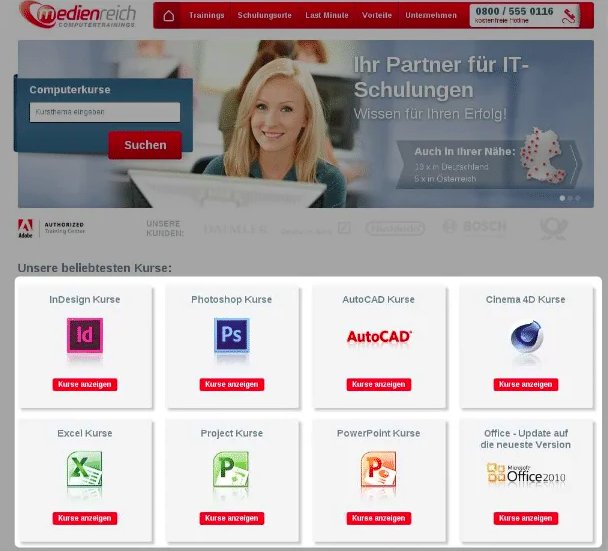- Customer Engagement Guide
- Customer Engagement Importance
- Customer Engagement Metrics
- Customer Engagment Strategies
- Ideas to Boost Customer Engagement
- B2B Customer Engagement
- Customer Engagement Tools
- Customer Engagment Vs. Customer Experience
- Customer Engagement Examples
- Digital Customer Engagement
- Improve Customer Engagement in Retail
- Customer Engagement Statistics
Why is Customer Engagement Important and What Are the Benefits?
In today’s competitive business landscape, customer engagement has emerged as a critical strategy for driving business success. With the multitude of marketing avenues available, businesses must actively engage their customers and improve customer engagement efforts to achieve their goals.
This article explores the various benefits and importance of customer engagement, backed by examples and key points, to demonstrate how it can be a game-changer for businesses.

Why is customer engagement important?
Let’s understand with an example.
Imagine a coffee shop that focuses on personalized customer experiences and engagement. They make an effort to remember their regular customers’ names and preferences and engage in genuine conversations. This personalized experience and customer engagement approach creates a strong emotional bond with the customers, making them feel valued and appreciated.
One day, the coffee shop introduces a new menu item based on customer feedback collected through surveys, social media, and customer interactions. They actively involve their customers in the decision-making process, making them feel like they are part of the coffee shop’s growth and success.
As a result of this effective customer engagement strategy, the coffee shop sees a significant increase in customer loyalty. Regular patrons are more likely to bring their friends and family, share positive experiences on their social media channels, and become brand advocates. This word-of-mouth promotion attracts new customers, contributes to building strong customer relationships, and ultimately drives up sales and revenue.
In contrast, a coffee shop that does not have a customer engagement strategy in place may not understand its customers’ preferences, leading to a stagnant menu and an indifferent atmosphere. This could result in a poor customer experience with many customers feeling disconnected and turning to competitors who make them feel more valued.
Through systemized customer information and relationship management, the first coffee shop in the example enjoys continuous growth, a strong community of loyal customers, and a thriving reputation in the local market. Needless to say, customer retention becomes easier for them.
8 major benefits of customer engagement
1. Strong customer relationships and increased customer loyalty
Customer engagement plays a pivotal role in fostering stronger relationships and improving customer loyalty. By going beyond mere transactions and actively engaging customers across multiple channels and touchpoints, businesses can build a deep connection with their audience.
For example, a clothing retailer could engage customers through personalized recommendations based on their preferences and shopping history, creating a sense of exclusivity. This personal touch can enhance customer satisfaction, leading to increased loyalty and repeat purchases.
2. Increased customer retention and reduced churn
A significant advantage of customer engagement is that engaged customers are more likely to stay loyal to a brand, resulting in reduced churn rates. By consistently nurturing customer relationships and addressing pain points, businesses can enhance customer satisfaction and loyalty.
For instance, a software company can provide proactive customer support, offering assistance and resolving issues promptly for better customer engagement. This entire customer experience contributes to customers feeling valued, leading to higher retention rates and reduced customer churn.
3. Cross-selling and upselling opportunities
Another benefit of engaging with customers includes the uncovering of valuable customer insights including their preferences, behaviors, and buying patterns. By analyzing customer engagement data, businesses can personalize their recommendations and accurately target cross-selling and upselling offers.
For example, an eCommerce platform can suggest complementary products or offer exclusive deals based on the customer’s browsing history and past purchases. This approach of using customer data not only increases the average customer lifetime value but also delivers relevant recommendations that resonate with customers, resulting in higher conversion rates. Many successful brands use VWO’s personalization capabilities to optimize and increase customer engagement on their website. This free trial lets you explore this important capability.
4. Increased subscribers and enhanced audience reach
Customer engagement can significantly contribute to expanding a business’s subscriber base and reaching a wider audience. By consistently delivering valuable and relevant content through various channels, businesses can attract and retain subscribers.
For marketing campaigns, for instance, a fitness brand could offer a monthly newsletter with workout tips, healthy recipes, and exclusive discounts. By delighting the audience with engaging content, businesses can establish themselves as industry experts and build a loyal subscriber base, increasing their brand reach and influence.
Take travel operator Thomas Cook, for instance. As per an article in MarketingWeek, Thomas Cook implemented a targeted lead generation campaign and travel survey to establish direct relationships with its target audience. The customer engagement campaign captured information on customer requirements and buying intentions to better understand their purchase lifecycle. A nurture program delivered personalized messaging and increased user engagement by leveraging customer data.
The improved customer engagement as a result of this campaign collected over 15,000 leads, resulting in increased email engagement rates and open rates. Click rates were significantly higher than the national average, achieving an ROI of 7.5:1 within three months post-registration. The data collected was incorporated into Thomas Cook’s newsletter program and overall CRM strategy.

5. Shorter purchase cycles and improved conversion rates
Customer engagement is not limited to existing customers; it is equally effective in shortening the sales cycle and converting prospects into customers. Well-planned and executed engagement strategies can inform, educate, and address prospects’ needs, positively impacting their purchase decisions.
For example, sales teams of SaaS companies could offer free webinars and demo sessions to educate potential customers about their product’s features and benefits. By engaging prospects throughout their buying journey, sales teams can establish trust, overcome objections, and accelerate the decision-making process, resulting in shorter purchase cycles and improved conversion rates. Thus, the byproducts of a successful customer engagement strategy are many.
Medienreich Training hypothesized that displaying their best-selling training topics would reduce the effort that their website visitors had to put in to search for these and offer a better experience to them. They A/B tested this hypothesis using VWO and found it to be true. It led to a 40% increase in visitor engagement on their homepage.
This was the control:

This was the variation:

You can read all the details of this case study here.
6. Brand evangelists and word-of-mouth marketing
Customer engagement benefits extend to turning customers into brand evangelists, actively promoting and recommending a business to others. By consistently engaging customers and providing exceptional experiences, businesses can create a community of highly satisfied loyal customers who willingly advocate for the brand. Brand loyalty is a huge deal when you are surrounded by cut-throat competition.
For example, a hospitality chain that engages guests through personalized services and memorable experiences (like a surprise cake on the customer’s birthday!) can generate positive word-of-mouth referrals, attracting new customers and enhancing brand reputation. These brand evangelists become a valuable marketing asset, driving organic growth and expanding the loyal customer base.
7. Establishing a distinguishable brand identity
Customer engagement also matters because it plays a crucial role in establishing and perpetuating a distinguishable brand identity. A well-thought-out engagement strategy that aligns with customer needs and preferences enables businesses to communicate their unique value proposition effectively.
For instance, a skincare brand that consistently engages with customers through educational blog articles, social media content, and personalized skincare consultations can create a distinct brand identity as a trusted skincare expert. This helps customers differentiate the brand from competitors and fosters a sense of identification, leading to increased brand loyalty and recognition.
8. Enhanced customer service and satisfaction
Why is engagement in customer service important? Why does customer engagement matter so much now? If you are ticking all the boxes of a basic customer support checklist, that should be it, right? Wrong.
A Zendesk report mentions that 81% of customers say a positive customer service experience increases the chances of them making another purchase. This is because effective customer engagement enables businesses to proactively interact with customers, anticipate their needs, and offer support beyond traditional channels.
For example, a telecommunications company that engages customers through social media platforms and live chat support ensures quick and convenient access to assistance, increasing customer satisfaction. By providing excellent customer service and maintaining ongoing engagement, businesses can build trust and boost engagement, customer comments, loyalty, and positive customer experiences.
We hope the above points have answered why customer engagement, with its numerous advantages, has emerged as a powerful strategy for businesses. You can leverage these benefits by putting in place strategic efforts in the direction of engaging customers continuously and consistently.
What is an effective customer engagement strategy?
The most effective customer engagement strategy varies depending on the nature of the business and its target audience. However, a combination of the following strategies tends to be highly effective:
1. Personalization
Tailor experiences to individual customers’ preferences, purchase history, and behavior. Use data analytics to understand customer needs and offer personalized recommendations, content, and promotions.
2. Omnichannel approach
Provide a seamless experience across various channels like website, social media, mobile app, email, and in-store. Allow customers to interact with your brand through their preferred channels for improved customer engagement.
3. Interactive content
Create content such as quizzes, polls, and customer surveys. When customers interact with this content, it not only helps gather valuable insights into the customer journey but also makes the engagement experience more enjoyable. Customer questions can come as a goldmine of insights into your brand experience.
Conclusion
Remember, a positive customer engagement strategy can be pivotal in helping brands connect with their customers in a way that makes them want to continue to be their customers. If you put in the effort to engage customers across various channels and touchpoints above and beyond what’s necessary to get them to make a purchase, you are likely to form stronger relationships with them. If you interact with them regularly about what’s relevant to them, keeping in mind their needs, priorities, motivations, and aspirations, you constantly remind them that you care.
Once you start offering more to engage your customers than just your product or service and adding value to their lives (or business), your customers are convinced to automatically turn to you whenever they think of making a purchase. This is why customer engagement is so important.
FAQs
The fundamental importance of customer engagement is in decreasing customer churn rate, increasing customer loyalty, and driving revenue growth. Fully engaged customers are more likely to advocate for the brand and become repeat buyers, contributing to the overall success of the business.
Customer engagement has a significant impact on businesses, leading to increased customer loyalty, higher satisfaction levels, improved brand perception, and ultimately, higher revenue and growth opportunities.
Good customer engagement refers to the process of actively interacting with customers in a meaningful and personalized way, meeting their needs and expectations, and fostering strong relationships. It involves effective communication, responsiveness, and delivering valuable experiences to create loyal and satisfied customers.
Communication: Maintaining open and effective channels of communication with customers to understand their needs and preferences.
Personalization: Tailoring interactions and experiences to meet individual customer preferences and expectations.
Value: Delivering valuable products, services, or content that align with customer needs, creating a positive and meaningful impact.
Personalized Recommendations: Offering product or content recommendations based on a customer’s past behavior and preferences, increasing the chances of making relevant and valuable suggestions.
Interactive Content: Using quizzes, polls, and surveys to actively involve customers, gather feedback, and understand their preferences better.
Social Media Engagement: Responding to customer comments, messages, and reviews on social media platforms to show attentiveness and build a positive brand image.
Loyalty Programs: Implementing loyalty programs to reward repeat customers and encourage them to stay engaged with the brand.
Email Campaigns: Sending targeted and relevant emails to keep customers informed about new products, promotions, or updates.
Live Chat Support: Providing real-time assistance through live chat on websites or apps to address customer inquiries and concerns promptly.
User-Generated Content (UGC): Encouraging customers to share their experiences, reviews, or photos related to the brand, fostering a sense of community and authenticity.
Events and Webinars: Hosting events, webinars, or workshops that cater to the interests of customers, allowing for direct interaction and knowledge sharing.
These examples illustrate different ways businesses can engage with their customers to build lasting relationships and enhance the overall customer experience.











